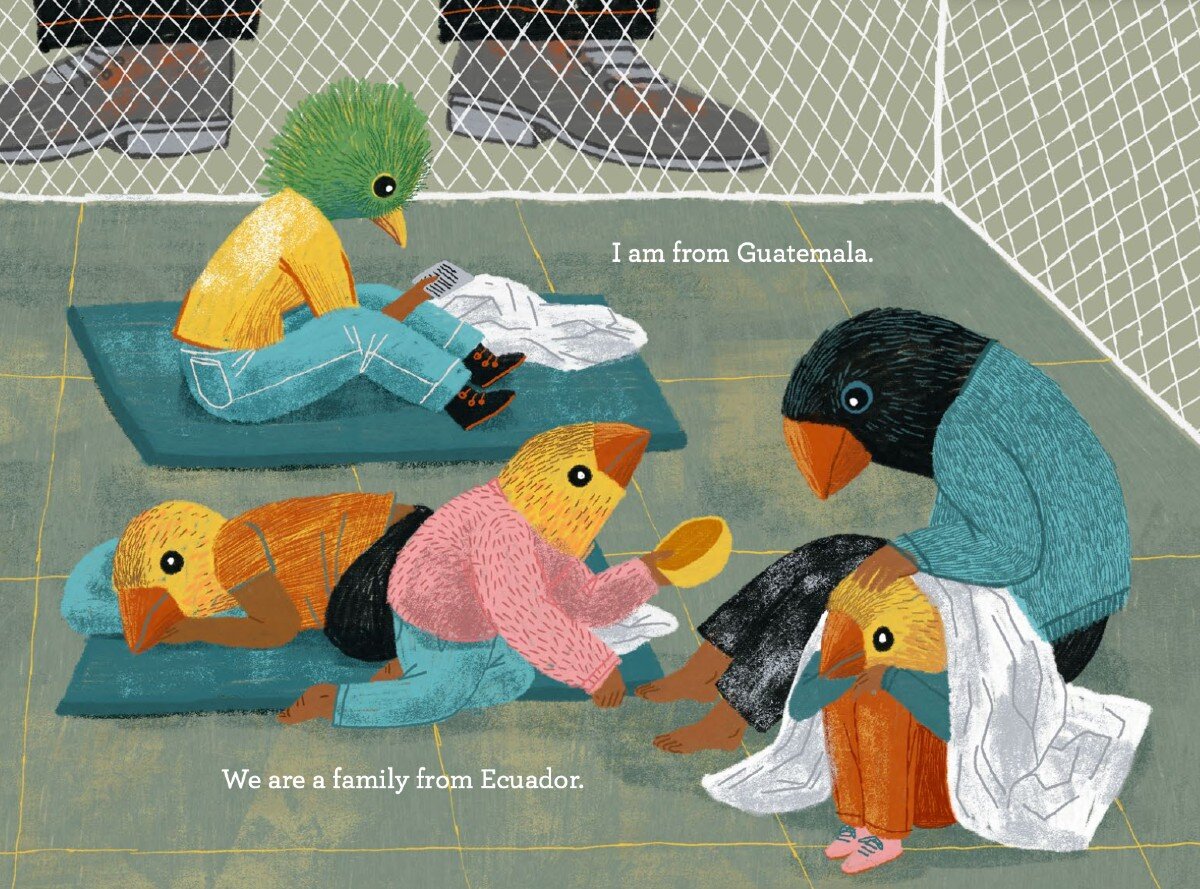Migrant children share stories about life at detention facilities on the southern border

The history between Mexico and the United States stretches back centuries, and the current challenges of immigration on both sides of the U.S.-Mexico border is a hot topic for both countries.
Warren Binford is the W.H. Lea Endowed Chair for Justice in Pediatric Law, Ethics and Policy at the CU School of Medicine. She is also a writer and attorney, and recently united with 17 Latinx illustrators to create a book titled “Hear My Voice/Escucha Mi Voz.”
“Hear My Voice” tells the story of 61 migrant children, in their own words, who crossed the U.S. border. These children, all between the ages of 5 and 17 years old, come from Ecuador, El Salvador, Guatemala, Honduras, and Mexico. In this book, readers will find heart wrenching testimonials about how sickening and devastating the American detention camps are from the perspective of children who were kept there.
Related Videos
Binford is also a children's advocate. She was entrusted with their stories during site visits to the facilities where the U.S. government and its contractors keep the children.
"When my team and I first went public about the detention camp conditions back in June of 2019, it was then we discovered 350 children that were being kept in a warehouse in a desert in Texas. Other children were kept in a loading dock at a border patrol station, in overcrowded detention cells that were wholly inappropriate for children," Binford explained. "Children had to sleep on concrete floors. Sometimes babies and small children were being put on the chest of other children to protect them from the cold."
Binford and the over 100 people who made this book possible, want Americans to get a chance to meet these children, learn why they came to the U.S., who they are, and their experiences since they arrived in the U.S.
"When I walk into those detention camps, and there is a little 7-year-old boy who is full of love, when I give him crayons and a piece of paper, and I asked him to tell me about his family or where he came from, he draws a picture like my child, or your child might draw," Binford said. "These migrant children who crossed the southern border are just kids."

Cecilia Ruiz, an illustrator, drew the cover for “Hear My Voice.” Each page in the book had unique illustrations from different Latinx illustrators. Ruiz said the entire process of putting this book together was emotional for all involve.
"It was like a roller coaster of emotions and a lot of mixed emotions drawing for this book because on one hand, I felt very fortunate to be part of this project, but dealing with the subject matter was emotionally draining," Ruiz said. "We're all dealing with the words of these migrants directly. We illustrators, we are illustrating their words directly. Our goal was to give justice to these kids."
Binford found that many American people have a strong misconception about immigrants.

"Because of the confidentiality and secrecy of where some of these children are sent, people don't have a chance to meet them to see that they are just children," Binford said. " Instead, some Americans have this view that they are referred to as 'murderers and rapists' or other horrible names. Because of these horrible accusations, people will then tend to group this whole population of immigrants into that portrayal."
Binford and her team have created a border management system designed to stop migrant children's nightmares. The design ensures migrant children are received in child-appropriate facilities, identified, and unified with their family in the U.S., if they have any.
"We also have to recognize that these children are a gift to us. The children who make it to the border are the ones who are intelligent, resourceful, resilient, and we need to recognize that every single one of these children are important to our country," Binford said. "If these migrant children have a legal basis for remaining here — and many of them do — then we need to make sure that we take good care of these gifts that our nation has received."
"The stories these children have shared are very raw. It is very painful, but it is very honest," Binford continued. “Confronting our past will help us continue to move forward and create a better society."
Lindsey Ford is a multimedia journalist at Rocky Mountain PBS. You can contact her at lindseyford@rmpbs.org.
